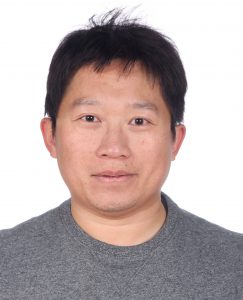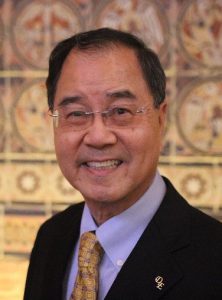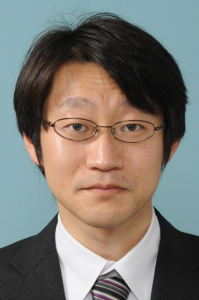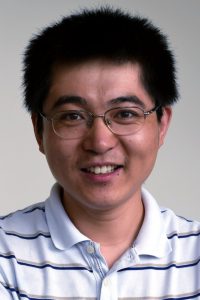
C9: News
Call for nominations for the 2021 IUPAP Magnetism Award and Néel Medal
The IUPAP Magnetism Award and Néel Medal are presented every three years, at the International Conference on Magnetism, to a scientist (or scientists) who has made an outstanding contribution to the field of magnetism.
A prize of $6,000 is awarded by IUPAP together with the medal. The awardee will be invited to present his or her results at the next ICM conference (now rescheduled to July, 2022 in Shanghai, China, due to the COVID-19 pandemic).
The award winner will be selected by a committee composed of the members of the IUPAP Magnetism Commission (C9), together with former award winners of the Magnetism Award and Néel Medal. Nominations may be made by anyone interested in the field of magnetism. Nominations for outstanding women and under-represented minority candidates are encouraged. Current members of the C9 commission are ineligible to be nominated. The nomination papers should include:
- Completed nomination form (in Word or PDF).
- Curriculum vitae of the candidate, which must not exceed two pages in length.
- List of 10 of the candidate’s most significant publications, including citation information, not to exceed one page.
- Commentary on the publications, which makes the case for the award, not to exceed two pages.
- Letters of support, up to a maximum of six pages in total.
The documents must be collated into a single pdf file called Surname_MANM.pdf, where Surname is the candidate’s last name. The file should not exceed 10MB in size. Nominations not conforming to these rules cannot be accepted.
Nominations should be sent by the nominator by January 31, 2021 via email to the C9 Secretary (Kai Liu) by e-mail to [email protected], and copying the C9 Chair (Burkard Hillebrands) at [email protected].
——————————
Call for nominations for the 2021 IUPAP Young Scientist Prize in the field of Magnetism
Established in 2016, the IUPAP Young Scientist Prize in the field of Magnetism is awarded every year to a young scientist for theoretical or experimental work in fields of fundamental or applied magnetism.
The nominated candidate must not have completed more than eight years of research after the doctorate by the nomination date, with allowances for military service and parental leave. The award consists of a certificate, medal and a monetary award of €1,000. The awardee will be invited to present his or her results at the next ICM conference (now rescheduled to July, 2022 in Shanghai, China, due to the COVID-19 pandemic).
The awardee will be selected by a committee composed of members of the IUPAP Commission on Magnetism (C9), together with past recipients of the Magnetism Award and Néel Medal. Nominations may be made by anyone interested in the field of magnetism. Nominations for outstanding women and under-represented minority candidates are encouraged.
The nomination package should include:
- Completed nomination form (in Word or PDF).
- Curriculum vitae of the candidate, which must not exceed two pages in length.
- List of six of the candidate’s most significant publications, including citation information, not to exceed one page.
- Commentary on the publications, which makes the case for the award, not to exceed two pages.
- Up to three letters of support, up to a maximum of two pages each.
The documents must be collected into a single pdf file called Surname_YSPM.pdf, where Surname is the candidate’s last name. Please keep the file size under 10MB. Nominations not conforming to these instructions cannot be accepted.
Nominations should be sent by the nominator by January 31, 2021 via email to the C9 Secretary (Kai Liu) by e-mail to [email protected], and copying the C9 Chair (Burkard Hillebrands) at [email protected].
———————————-
2020 IUPAP Young Scientist Prize in the field of Magnetism
The IUPAP Commission on Magnetism is pleased to announce that the recipient of the 2020 IUPAP Young Scientist Prize in the field of Magnetism is:
Dr. Jiadong Zang, University of New Hampshire
“For outstanding theoretical studies of the interplay between magnetism and topology”.
Established in 2016, the IUPAP Young Scientist Prize in the field of Magnetism is awarded every year to a young scientist for theoretical or experimental work in fields of fundamental or applied magnetism. This annual award replaces the two prior awards for theoretical/computational work and for experimental work established in 2006, which were awarded every three years at the International Conference on Magnetism (ICM). The award committee consists of members of the IUPAP Commission on Magnetism, together with past recipients of the IUPAP Magnetism Award and Néel Medal. All members of the magnetism community were invited to make nominations.
The award will be presented to Dr. Zang at the 2021 ICM, to be held in Shanghai, China, during July 4-9, 2021.
—————————————————————
2019 IUPAP Young Scientist Prize in Magnetism
The IUPAP Commission on Magnetism is pleased to announce that the recipient of the 2019 IUPAP Young Scientist Prize in the field of Magnetism is:
Dr. Julia Mundy, Harvard University
“For pathbreaking research on electric field control of magnetism using epitaxially designed multiferroics.”
Established in 2016, the IUPAP Young Scientist Prize in the field of Magnetism is awarded every year to a young scientist for theoretical or experimental work in fields of fundamental or applied magnetism. This annual award replaces the two prior awards for theoretical/computational work and for experimental work, which were awarded every three years at the International Conference on Magnetism (ICM). The award committee consists of members of the IUPAP Commission on Magnetism, together with past recipients of the IUPAP Magnetism Award and Néel Medal. All members of the magnetism community were invited to make nominations.
The award will be presented to Dr. Mundy at the 2021 ICM, to be held in Shanghai, China, during July 4-9, 2021.
—————————————————————
2018 IUPAP Magnetism Award and Néel Medal
The IUPAP Commission on Magnetism is pleased to announce that the 2018 IUPAP Magnetism Award and Néel Medal will be awarded to:
Dr. Samuel D. Bader, Argonne National Laboratory
“For outstanding and sustained experimental contributions to the field of magnetic surfaces, films, and nanostructures”.
Prof. Ramamoorthy Ramesh, University of California, Berkeley
“For groundbreaking discoveries in novel multiferroic and magnetoelectric materials and their applications in future technologies”.
Prof. Kang L. Wang, University of California, Los Angeles
“For the discovery of chiral Majorana fermions and outstanding contributions to topological spintronics”.
Established in 1991, the IUPAP Magnetism Award is made in recognition of outstanding contributions to fundamental and applied magnetism. It is presented every three years at the International Conference on Magnetism (ICM). The Néel Medal is awarded together with the Magnetism Award, since 2003, sponsored by CNRS and Institut Néel. A monetary award for the winner(s) is generously sponsored by Elsevier. This year’s award will be presented at the 2018 ICM, to be held in San Francisco, CA, during July 15-20, 2018.
The award committee consists of members of the IUPAP Commission on Magnetism, together with past recipients of the Magnetism Award and Néel Medal. All members of the magnetism community were invited to make nominations.
—————————————————————
2018 IUPAP Young Scientist Prize in Magnetism
The IUPAP Commission on Magnetism is pleased to announce that the 2018 IUPAP Young Scientist Prize in the field of Magnetism will be awarded to:
Dr. Shinichiro Seki, RIKEN
“For discovery of multiferroic behavior and electrically controllable skyrmions in insulating chiral magnets”.
Established in 2016, the IUPAP Young Scientist Prize in the field of Magnetism is awarded every year to a young scientist for theoretical or experimental work in fields of fundamental or applied magnetism. This annual award replaces the two prior awards for theoretical/computational work and for experimental work, which were awarded every three years at the International Conference on Magnetism (ICM). The award committee consists of members of the IUPAP Commission on Magnetism, together with past recipients of the IUPAP Magnetism Award and Néel Medal. All members of the magnetism community were invited to make nominations.
The award will be presented to Dr. Seki at the 2018 ICM, to be held in San Francisco, CA, during July 15-20, 2018.
—————————————————————
2017 IUPAP Young Scientist Prize in Magnetism
The 2017 IUPAP Young Scientist Prize in the field of Magnetism will be awarded to:
Dr. Luqiao Liu, Massachusetts Institute of Technology, Cambridge, USA
“For the pioneering demonstrations of the spin Hall effect excitation of ferromagnetic resonance, and of the surprisingly large spin Hall angles of particular heavy metals as determined by spin-torque ferromagnetic resonance, for seminal experiments and analysis of magnetic switching and auto-oscillation driven by that spin Hall effect, and for continuing research advancing the understanding and applicability of spin-orbit torques.”
The award will be presented to Dr. Luqiao Liu, at the next International Conference on Magnetism (ICM), which will take place in San Francisco, July 15-20, 2018.
Dr. Luqiao Liu has been a tenure-track Assistant Professor of Electrical Engineering at the Massachusetts Institute of Technology since September 2015. He received his Ph.D. degree in Applied Physics from Cornell University in 2012. He spent three years as a Research Staff Member at the IBM Watson Research Center before joining the MIT faculty. Dr. Liu’s current research focus is on advancing new materials and novel device structures for spintronics, including spin-based memory, logic and communication applications. Dr. Liu is the recipient of the 2017 William L. McMillan Award in Condensed Matter Physics—————————————————————
2016 IUPAP Young Scientist Prize in Magnetism
The 2016 IUPAP Young Scientist Prize in the field of Magnetism will be awarded to:
Dr. Wei Han, Peking University, China
 “For significant contributions to spin injection, spin transport and spin relaxation in graphene, and to the discovery of interface transparency and triangular antiferomagnetic IrMn3 for spin orbit torque in magnetic heterostructures.”
“For significant contributions to spin injection, spin transport and spin relaxation in graphene, and to the discovery of interface transparency and triangular antiferomagnetic IrMn3 for spin orbit torque in magnetic heterostructures.”
The award will be presented to Dr. Han at the next International Conference on Magnetism (ICM), which will take place in San Francisco, July 15-20, 2018.
Dr. Wei Han has been a tenure-track assistant professor in the International Center for Quantum Materials (ICQM) at Peking University since 2014. He received his Ph.D. in physics at University of California, Riverside in 2012. Then, he spent two and half years at IBM Almaden Research Center as a postdoctoral associate. Dr. Han’s main research focus has recently been on graphene spintronics, spin orbit torque in magnetic heterostructures, and two-dimensional quantum interfaces/materials. Dr. Han is the recipient of the 2009 AVS Leo Falicov student award and the 2012 APS GMAG student dissertation award.
—————————————————————
2015 IUPAP Magnetism Award and Néel Medal
The 2015 IUPAP Magnetism Award and Néel Medal have been awarded to
Citation: “For pioneering discoveries in magnetic materials and nanostructures”
—————————————————————
2015 IUPAP Young Scientist Prize in Magnetism
The 2015 IUPAP Young Scientist Medals in the field of Magnetism have been awarded to (in alphabetical order):
Citation: “For the development of new methods to excite and detect on-chip ferromagnetic resonance and new detection schemes for the magnon-drag effect.“
and
Citation: “For the pioneering work on domain wall dynamics in magnetic nanowires and contributions to the development of current controlled magnetism in magnetic heterostructures using spin orbit effects”
 IUPAP: The International Union of Pure and Applied Physics
IUPAP: The International Union of Pure and Applied Physics





